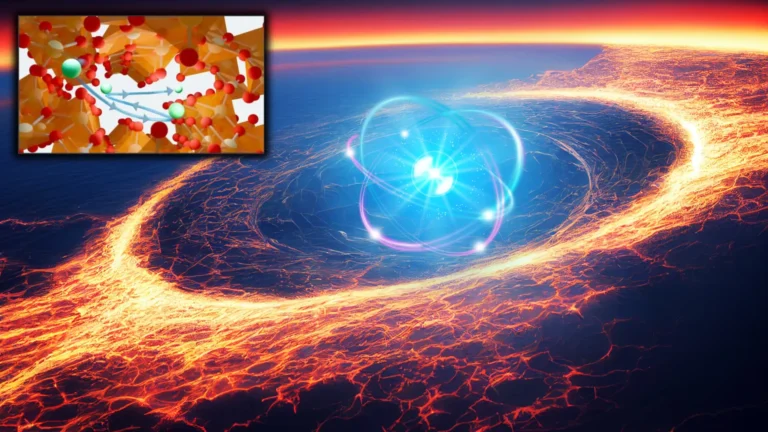
The Vagus Nerve: A New Frontier in Treating Severe Depression and Chronic Conditions
The vagus nerve, often described as the body’s communication superhighway, has captured the attention of researchers for its potential to treat a wide range of chronic and treatment-resistant conditions. From alleviating severe depression to modulating inflammation, recent studies and clinical trials are unraveling the remarkable capabilities of this interconnected neural network.

Hope for Treatment-Resistant Depression
A groundbreaking clinical trial led by researchers at Washington University School of Medicine has shown that vagus nerve stimulation (VNS) can significantly improve symptoms in patients with severe, treatment-resistant depression. The trial involved nearly 500 participants, all of whom had struggled for years with depression unresponsive to conventional treatments, including medication and electroconvulsive therapy.
Participants received an implanted device that delivers electrical pulses to the left vagus nerve, a key neural pathway connecting the brain and internal organs. Over the course of a year, those with active devices reported meaningful improvements in their quality of life, ability to perform daily tasks, and depressive symptoms compared to those with inactive devices.
“These patients had tried an average of 13 treatments that failed to help them,” said Dr. Charles R. Conway, principal investigator of the RECOVER trial. “Despite that, we observed statistically significant and life-changing improvements. This therapy could transform lives, enabling patients to move from being paralyzed by depression to living more functional and fulfilling lives.”
While the devices were approved by the FDA in 2005 for treatment-resistant depression, adoption has been limited due to high costs and a lack of insurance coverage. The RECOVER trial, supported by the Centers for Medicare and Medicaid Services (CMS), aims to provide the data needed to secure broader insurance support, potentially making VNS therapy more accessible.
The Broader Impact of Vagus Nerve Stimulation
Beyond depression, the vagus nerve’s influence spans numerous bodily systems, making it a promising target for innovative therapies. Known as the “wandering nerve,” it plays a vital role in regulating heart rate, digestion, immune responses, and emotional states.
Research has shown that VNS devices, including non-invasive options, can be effective in treating conditions like epilepsy, migraines, chronic pain, and even long COVID. Clinical trials are also exploring the use of VNS for autoimmune diseases, obesity, and inflammatory bowel disease.
In one notable discovery, researchers found that VNS can suppress excessive inflammation by modulating the release of proinflammatory cytokines. This mechanism could have significant implications for conditions driven by chronic inflammation, such as rheumatoid arthritis and lupus.
A Serendipitous Mood Booster
The potential of VNS for depression was first discovered accidentally. In the late 1990s, patients treated with VNS for epilepsy reported significant improvements in mood, even if their seizures persisted. This led to further investigation into the nerve’s role in mood regulation. Scientists now understand that the vagus communicates with brain regions responsible for emotions, stress, and reward, such as the amygdala and hypothalamus.
By sending calming signals through the vagus, VNS not only alleviates depressive symptoms but also helps regulate the body’s “fight-or-flight” responses, promoting balance and well-being.
The Road Ahead
Despite the promise of VNS therapy, challenges remain. The effects of stimulation often take months to manifest, and not all patients achieve complete remission. However, researchers are optimistic. Ongoing trials aim to identify patient characteristics that predict the best response to treatment, and advancements in non-invasive devices could further expand accessibility.
As Dr. Kevin J. Tracey, a leading neurosurgeon, remarked, “A revolutionary idea can take decades to be fully embraced, but the potential of vagus nerve stimulation is undeniable.” With continued research and investment, the vagus nerve may hold the key to addressing some of the most complex and hard-to-treat conditions, offering hope to millions worldwide.
References
- Vagus nerve stimulation relieves severe depression – Wash U Medicine – (Accessed on Dec 20, 2024)
- The Vagus Nerve’s Mysterious Role in Mental Health Untangled – SCI AM – (Accessed on Dec 20, 2024)
⚠️ Disclaimer:
The content on LabTestsGuide.com is for informational and educational purposes only. We do not guarantee the accuracy, completeness, or timeliness of the information provided. Always consult qualified healthcare professionals for medical advice, diagnosis, or treatment. LabTestsGuide.com is not liable for any decisions made based on the information on this site.







